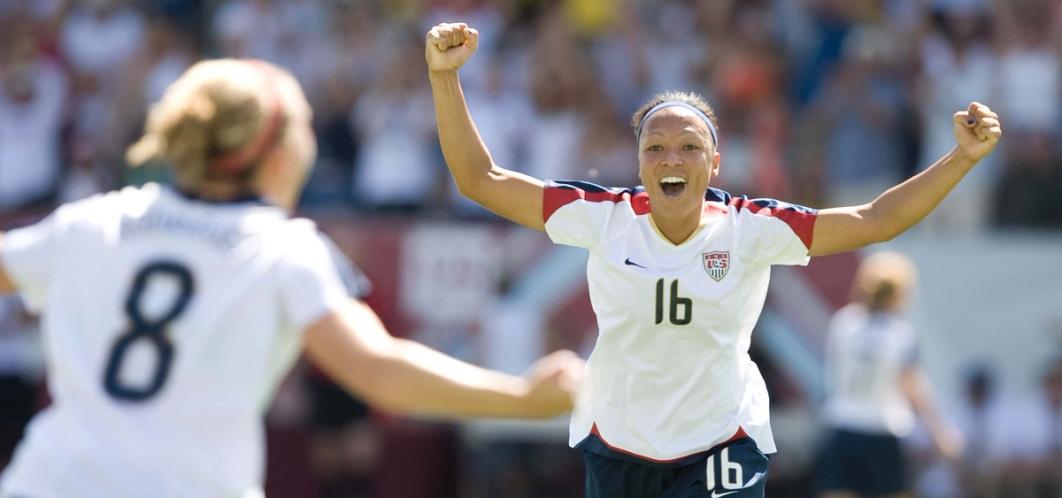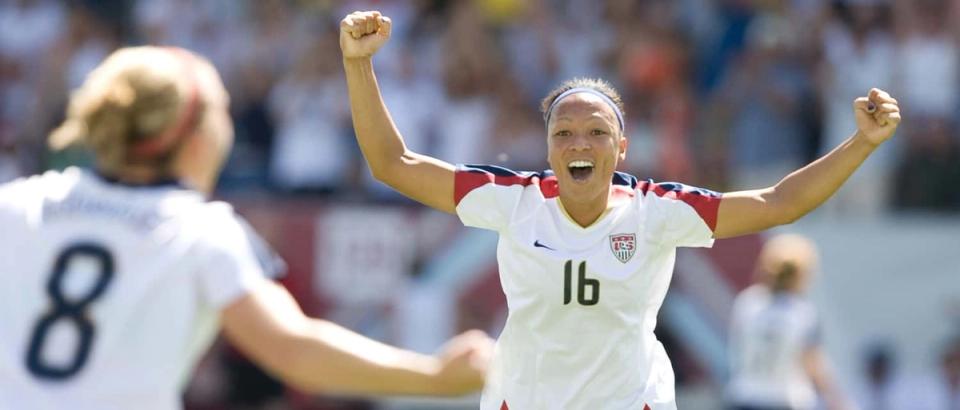2008 Olympics: An Angela Hucles Summer
She was not supposed to start, never mind star, at the 2008 Olympics. But an injury to Abby Wambach gave Angela Hucles her chance to shine and -- with the help of her teammates and coaches -- she stepped up in historic fashion.
















